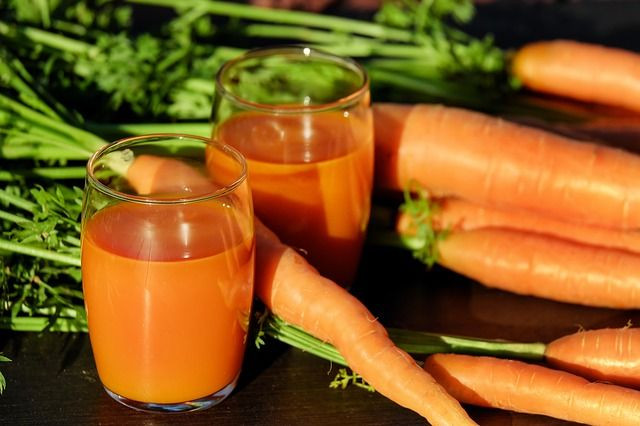The Truth About Juice Cleanses: Hunger, Happiness, And Weight Loss

Juicing is just the latest diet cleanse craze in a long history of healthy tricks and tips. First came the "smoking keeps you thin" diet from the 1930s and 40s, followed closely behind by the 1957 “pray your weight away” diet, which seems so impossible it’s preposterous. Then came the 1960s, when the support groups and cabbage soup diet, which promised followers to lose 17 pounds, took over. Two years later, Weight Watchers was born.
It was in the 70s when diet pills took over, but after reports of vomiting and abdominal pain came flooding in to the Food and Drug Administration, the pills were investigated in 1983. Next came an accumulation of different nutrient balancing acts, such as high protein, low carb, organic, and gluten-free. But low-calorie diets paved the way for the newest mania: liquid diets.
Biology Behind The Juice
Juicing may have started as a way to get in all the fruits and veggies a person needs each day. A study published last year found people who ate up to seven servings of fruit and vegetables can cut their risk of premature death by 42 percent, but most don’t reach anywhere near that level. According to the U.S. Department of Agriculture, men and women are recommended to consume two-and-a-half to three cups of vegetables, and one-and-a-half to two cups of fruit daily.
It is not uncommon to feel hungry while on a juicing binge because you lose vital fiber when you turn fruits and veggies into liquids. Juicing machines extract the juice and leave behind the valuable pulp, which is where a majority of the fiber is stored. Although juicing efficiently delivers a lot of vitamins and minerals into your body, you’ll still be missing out on the fiber that helps with digestion, moderates blood sugar levels, and keeps you feeling fuller, longer.
You’re also not getting enough carbs or protein from the liquids. You’ll likely feel tired and sluggish as well, because you’re not meeting the minimum standards for amino acids, which are the building blocks for protein. By not consuming enough protein, the body loses muscle mass. It’s even worse if you’re exercising while juicing because the muscles need to be replenished and the juices just don’t have enough nutrients to provide a healthy body with.
Will you be happy? Whenever you remove unhealthy items from your diet and cut out all processed foods, most people will experience a release of toxins. On top of that, your brain is just not happy. It enters into the beginning of starvation mode and starts rapidly breaking down ketones, which is fuel from previously stored fat. Ketones are comparable to low-grade gasoline, which is why people report feeling irritable and unfocused without fuel to run on. The brain also needs those precious amino acid building blocks, which not only build muscle but also work as neurotransmitters used to maintain mood. People who are prone to depression should keep a steady flow of protein in their diet, or if they choose to juice, make sure to do it in short spurts.
Juice cleanses can last anywhere from a day to five days. A liquid diet lasting any longer would require supplements and protein powders to keep the body running. People report feeling lightheaded from the cleanse, and that’s because most of the regiments cap at 1,000 calories a day — half the daily recommended caloric intake for adults.
So, will you lose weight? Absolutely, because you’re not consuming the normal amount of calories you normally would, and a dip in caloric intake will lead to weight loss. However, a lot of those pounds come from water weight, which you’ll likely gain back after the cleanse is complete. The best way to juice is by incorporating it into a balanced diet of solid proteins and complex carbohydrates, instead of trying to run your body on a liquid-only detox.
This article originally appeared in Medical Daily.
Copyright Medical Daily News Service. All rights reserved.





















